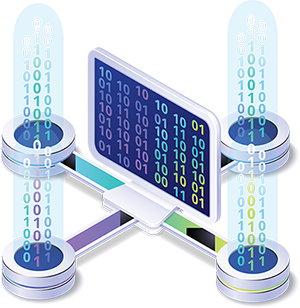How to Fix CVE-2022-2959- A Privilege Escalation Vulnerability in Linux Kernel?

The CVE-2022-2959 is rated with a CVSS 7 score, which is for medium-level vulnerabilities. It creates a loophole on Linux systems running with Kernel version 5.18. It enables the low-level users to gain higher-level permissions and run code on the system. Additionally, it even makes the attackers capable of crashing the system.
But, the only condition to exploit this vulnerability is that the system must be accessed physically. Attackers cannot leverage this loophole from a remote location.
Several organizations and advisories offering Linux OS distributions have published a statement that not all versions are impacted by it. For instance, RedHat has clarified that its Enterprise OS versions 6,7 and 8 are safe.
The Exact Impact of CVE-2022-2959
The CVE-2022-2959 vulnerability is caused by a lack of appropriate pipe buffer handling. Due to this, a local user, having access to the system, can execute code with higher privileges.
In the background, the loophole is used by a low-privilege user to call the post_one_notification() method for triggering a notification and holding the free pipe buffer access.
In addition, this vulnerability was creating a race condition in the Linux Kernel watch queue because of the missing pipe_resize_ring() lock.
Therefore, besides escalating the privileges, it also enables unauthorized users to crash the system, impacting the system, resource, or service availability.
The Procedure To Fix Privilege Escalation Vulnerability (CVE-2022-2959)
To fix the privilege escalation vulnerability with CVE-2022-2959, you need to update your Linux system. Many Linux OS distributors, such as RedHat, have issued a list of all the patches for the associated OS version.
If you are using any other Linux operating system distribution, such as SUSU or Debian, you should check the official website for updates.
Besides these Linux distribution-specific updates, you can use the code available on the Linux Torvalds GitHub repository.
The link to the code:
https://github.com/torvalds/linux/commit/189b0ddc245139af81198d1a3637cac74f96e13a
In this repository, you will understand the approach to fix pipe_resize_ring(). The information on GitHub states that the pipe->rd_wait.lock spinlock is required by pipe_resize_ring() to avoid post_one_notification. Moreover, the occupancy check should also be performed following the lock is taken. And a new ring should also be allocated.
Additional Mitigation Tips
The CVE-2022-2959 vulnerability can only be leveraged if the user has physical access to the system. With remote access, it’s not possible to exploit this vulnerable loophole. So, you should focus on maintaining a reliable physical security layer where the admin systems are installed/configured.
You can use the following mechanisms:
- Biometrics
- Physical Key based login
- CCTV for monitoring
Additionally, you can use two-factor authentication and digital certificates to maintain data integrity and confidentiality.
Concluding Up
The CVE-2022-2959 must be patched as soon as possible, and proper physical controls must be configured. It will help you avoid privilege escalation of the Linux Kernel and avoid unauthorized access over the system. It’s always recommended to have a security expert on the team who can monitor all these vulnerabilities and patch them.
In addition, keep yourself upgraded with the updates provided by Linux distributor companies and organizations. As a result, vulnerabilities will be reduced or eliminated from your machine.

Safeguard your Code and Drivers
Add a digital signature on a file, program, software, or driver using Trusted Code Signing Certificate from trusted root certification authority using a secure public key infrastructure (PKI).
